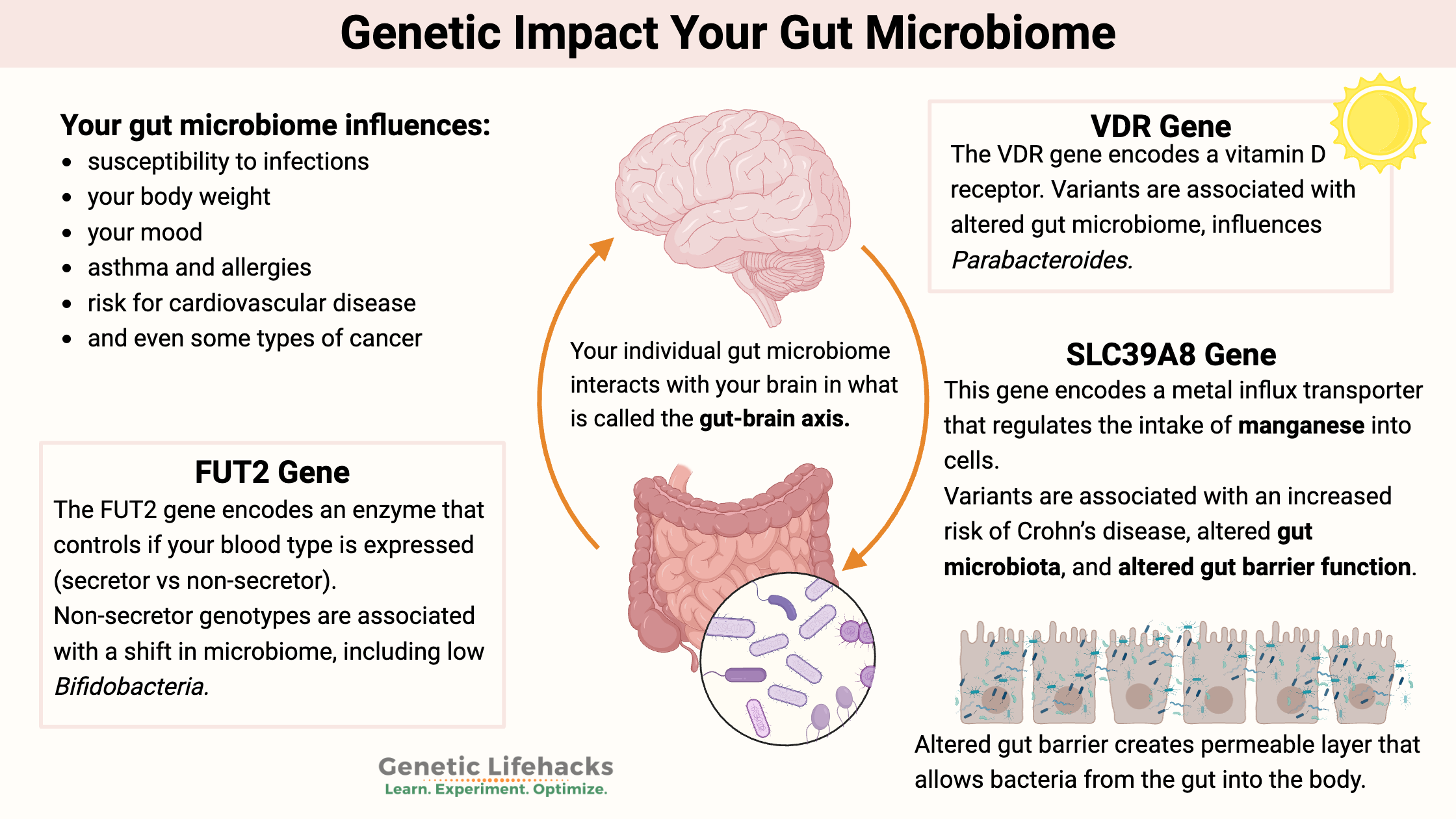Key takeaways:
~ The gut microbiome is unique to each individual and impacts your health.
~ Your genetic variants – along with your diet and environment – impact which bacteria can live in your gut.
Your gut microbiome and your genes:
Your gut microbiome is unique to you. But why? Have you ever wondered why our gut microbes are different?
The microbes that take up residence in your intestines depend on:
- the foods you eat (or rather, what you feed your bacteria)
- exposure to different bacteria
- exposure to toxins or antibiotics
- and your genes!
The human gut microbiome is made up of bacteria, viruses, fungi, archaea, and obelisks that inhabit the ecosystem of our intestinal tract. It plays an integral role in our overall health.
Research increasingly shows that host genetics – your gene variants – play an important role in shaping which microbes thrive in our gut. Your genetic variants interact with environmental influences like diet, lifestyle, and medication to shape your gut microbiome.
How your genes impact your gut microbiome:
Research shows that the influence of our gut microbes on our health is huge.
Your gut microbiome influences:
- susceptibility to infections, such as H. pylori[ref]
- your body weight (big time)[ref]
- your mood — including regulating anxiety and depression[ref]
- whether you have asthma and allergies[ref]
- your risk for cardiovascular disease[ref]
- and even some types of cancer[ref]
While it may seem odd to think of yourself as a host, as an environment… that is just what you are to the microbes living within or on you. And just like your genetic variants make you look and act differently than everyone else, your unique makeup also influences the types of microbes that can flourish within you.
Heritability and Twin Studies:
Studies of twins and families have revealed that certain components of the gut microbiome are heritable. This means that genetic variants partly explain why some people naturally have higher levels of specific microbes than others.[ref][ref]
Why is your gut microbiome important?
Whether bloating, rumbling, or running to the bathroom, we have all experienced the misery at some point of not having happy intestinal function… But when it’s working just fine, most people tend to ignore the tiny microbes hard at work in their intestines.
Your gut microbes can play an important role in your health, though.[ref]
- Some microbes produce vitamins such as vitamin K and some B vitamins.
- Others produce short-chain fatty acids used by the intestinal cells as well as signaling to the liver to decrease cholesterol synthesis.
In people who are overweight or obese, the gut microbiome increases how much energy is obtained from food.[ref] You are what you eat — and also what your microbes eat and produce fatty acids from.
Gut Microbes Genotype Report:
Your genetic variants play a role in which species are likely to make up your gut microbiome. Research on this is in its infancy, though, so there is still a lot more to learn on this topic.
Lifehacks:
Work with your gut microbes instead of against them:
Related Articles and Topics:
TNF-alpha: Inflammation, Chronic Diseases, and Genetic Susceptibility

